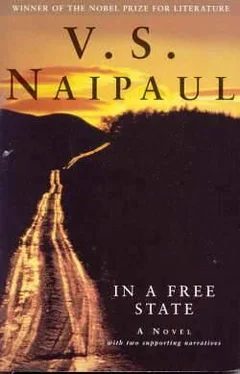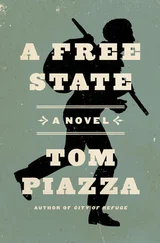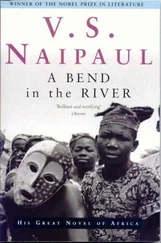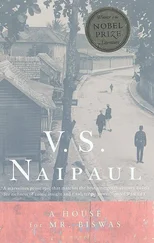Vidiadhar Naipaul - In A Free State
Здесь есть возможность читать онлайн «Vidiadhar Naipaul - In A Free State» весь текст электронной книги совершенно бесплатно (целиком полную версию без сокращений). В некоторых случаях можно слушать аудио, скачать через торрент в формате fb2 и присутствует краткое содержание. Жанр: Современная проза, на английском языке. Описание произведения, (предисловие) а так же отзывы посетителей доступны на портале библиотеки ЛибКат.
- Название:In A Free State
- Автор:
- Жанр:
- Год:неизвестен
- ISBN:нет данных
- Рейтинг книги:5 / 5. Голосов: 1
-
Избранное:Добавить в избранное
- Отзывы:
-
Ваша оценка:
- 100
- 1
- 2
- 3
- 4
- 5
In A Free State: краткое содержание, описание и аннотация
Предлагаем к чтению аннотацию, описание, краткое содержание или предисловие (зависит от того, что написал сам автор книги «In A Free State»). Если вы не нашли необходимую информацию о книге — напишите в комментариях, мы постараемся отыскать её.
«V. S. Naipaul tells stories which show us ourselves and the reality we live in. His use of language is as precise as it is beautiful.» – The London Times
«A Tolstoyan spirit…The so-called Third World has produced no more brilliant literary artist.» – John Updike, The New Yorker
«The coolest literary eye and the most lucid prose we have.» – The New York Review
In A Free State — читать онлайн бесплатно полную книгу (весь текст) целиком
Ниже представлен текст книги, разбитый по страницам. Система сохранения места последней прочитанной страницы, позволяет с удобством читать онлайн бесплатно книгу «In A Free State», без необходимости каждый раз заново искать на чём Вы остановились. Поставьте закладку, и сможете в любой момент перейти на страницу, на которой закончили чтение.
Интервал:
Закладка:
The eyes now smiled, turning from the middle-aged woman writing at the counter to Bobby. When Bobby smiled back, the African did not respond. His smile was fixed.
The woman looked up.
'Can we have lunch for three?'
'We start at twelve.'
And then, as though not wishing to show too much interest in Bobby while the smiling African looked on, she returned to her writing.
Bobby didn't see Linda and Carter when he came out of the office. He walked down the gravelled path between the cottages and the drooping flowers. Outside each door there was a little pile of split eucalyptus logs, wet from the rain. An old grey-and-black spaniel was worrying one pile, sniffing loudly. From the cottages the hummocked open land, so recently forest, sloped down to what was still woodland. The stream roared there, its course marked by the bare white branches of those trees whose roots it had drowned.
A forest stream, it turned out, with the forest debris of collapsed trees. But from the high bank on which he stood Bobby saw flat stones and boulders below the raging red water: stepping stones: the small thrills, perhaps, of an ordered garden in a gentler season. A little way up there was a remnant of a retaining brick wall. The stream had long ago breached that and now in flood was making another channel through what had once been a garden, swamping the arum lilies that had grown wild. Sunlight, coming through the trees, lit up some of the white lilies and showed them as patches of pure colour against the tangled weeds pulled flat by the flow of water, silent here, and already in places gathered into stagnant pools.
All at once the lilies lost their brightness; it grew dark below the trees; the swamped garden was silent. The stream raged on. On the other bank tree trunks were black in the gloom; leaves and branches hung low. The wood of a fairy-tale, far from home: what was so recently man-made, after the forests had been cut down and the forest-dwellers flushed out and dismissed, what had perhaps been intended only as an effect of art in a landscape made secure, had become natural. It spoke of an absence of men, danger. Bobby thought of the king, hunted from the sky. He looked up. The rainclouds had massed; the road ahead was untarred for a hundred miles.
He went out of the wood into the open and walked back up the hill. The spaniel was still worrying the pile of split logs and had partly pulled it down. The African with the smile was now outside the office, his hat still in his hand. Bobby acknowledged the African's gaze, turned into the hall and went into the room marked _Lounge__.
It was a long wide room. Small-paned windows with chintz curtains gave clear views of the woodland, the hills beyond with irregular blocks of pine forest, the play of rainclouds. The furniture looked used but not recently used. The new photograph of the president, the man of the forest with his hair now in the English style, stood between coloured prints of English scenes. There were old magazines: photographs of parties, dances, country houses, furniture: an England, as it were, for export, carefully photographed, with what was offending left out. The English countryside Bobby knew best was a spreading semi-industrial confusion of housing developments like tent-cities, old houses lost on busy main roads, railroad tracks, factory buildings; where what remained of Nature – a brook, it might be, with pollarded willows – looked only like semi-urban wasteland. But the room he was in echoed the photographs in the magazines. The scale was too large, for him, for the injured woman in the tiny office; and perhaps it had always been too large.
Someone shrieked: 'Three lunches, was it?'
The shriek, really a hoarse, piercing whisper, came from a middle-aged white man in a state of great ruin. He was bandaged and plastered all the way up one leg and all the way up one arm. He barely supported himself on metal crutches and at every step he seemed about to fall on his face.
'Motor accident,' the man hissed, with some pride. 'They say lightning never strikes twice…' He shook his head. 'You saw my wife?'
'In the office?'
'Got her too.' He leaned forward at a steep angle like a comedian. 'Oh yes. But all right now. Just the itching. Funny thing about plaster. You know, when they take it out at the end, they will still find that little bit at the centre wet. You heading south? Work there? Short-contract man?'
Bobby nodded.
'You're the lucky ones. Sending half back to the London bank every month, eh? Salting it away. But bad in the Collectorate now. Going to be a lot of trouble there, I reckon.'
'I don't know what you mean by trouble,' Bobby said.
The ruined man became guarded. 'No trouble up here.' He nodded to the photograph of the president. 'The witchdoctor's all right. Oh no. No trouble here. Tourism's going to be big business, and the African knows he can't manage it by himself. Say what you like, the African's no fool.'
Bobby put the magazine down and began to move away. He didn't hurry; there was no need. The ruined man started after him, but couldn't pursue.
The African was still outside the office. The spaniel sat, old and blank, on the office steps. The woodpile outside the cottage door had been pulled down. Near it Bobby now saw lavender in bloom, an old bush. As he bent down to break off some spikes he saw, among the scattered logs, a lizard's tail, separate, dead. Then he saw Linda and Carter. Linda waved. It was a large gesture; her blue trousers and cream shirt, seen at a distance, against the gravelled path and the unsettled light of the open hillside, were vivid; and again, as at the start of the day, it was as though they had an audience and were all three in a film or play. Bobby turned: it was only the gaze of the African, cleaning his top lip with his tongue.
Linda said, 'What have you got, Bobby?'
'Lavender.' He passed a spike below her nose. 'I love lavender. Is that effeminate of me?'
She laughed. For the first time he saw her poor teeth. 'I wouldn't say effeminate. I would say old-fashioned.'
She was the brightest of the three when they went into the high timbered dining-hall.
They sat at the edge of the desolate room, next to the high fireplace. There was no fire, but logs had been laid. The boy was nervous and abstracted and kept on adjusting the cutlery on the table. His white shirt was less than fresh; his dusty black bowtie was askew.
Carter said, 'You colonialists did pretty well.'
'What a lovely word,' Linda said. 'One so seldom hears it in conversation. You make it sound very big and technical.'
'Sitting here, I feel they must have been very big people. Giants in fact. I suppose that's why they haven't lighted the fire for us. We're too small.'
Or too ugly, Bobby thought, breaking his roll.
The frightened boy brought in the soup plate by plate, pressing his thumbs on the rims. He walked with a stoop, raising his knees high; his big feet, loosely hinged at the ankles, flapped up and down.
'He almost looks like one of ours,' Carter said.
'Carter says there's a four o'clock curfew in the Southern Collectorate, Bobby. The army's rampaging somewhat, apparently.'
'That's what African armies are for,' Carter said. 'They are intended only for civilian use.'
'So it looks as though we'll have to spend the night at the colonel's,' Linda said. 'Or stay here.'
'The "boy" might light the fire for you,' Carter said to Bobby. Something was wrong with Carter's molars, and he ate like a dog, holding his head over his plate and catching the food in his mouth with every chew, at the same time giving a slight hiss, as though every mouthful was too hot.
He finished a mouthful and made conversation. He said, 'I can't get used to this word b_oy__.'
'Doris Marshall tried to call hers a butler,' Linda said.
Читать дальшеИнтервал:
Закладка:
Похожие книги на «In A Free State»
Представляем Вашему вниманию похожие книги на «In A Free State» списком для выбора. Мы отобрали схожую по названию и смыслу литературу в надежде предоставить читателям больше вариантов отыскать новые, интересные, ещё непрочитанные произведения.
Обсуждение, отзывы о книге «In A Free State» и просто собственные мнения читателей. Оставьте ваши комментарии, напишите, что Вы думаете о произведении, его смысле или главных героях. Укажите что конкретно понравилось, а что нет, и почему Вы так считаете.











